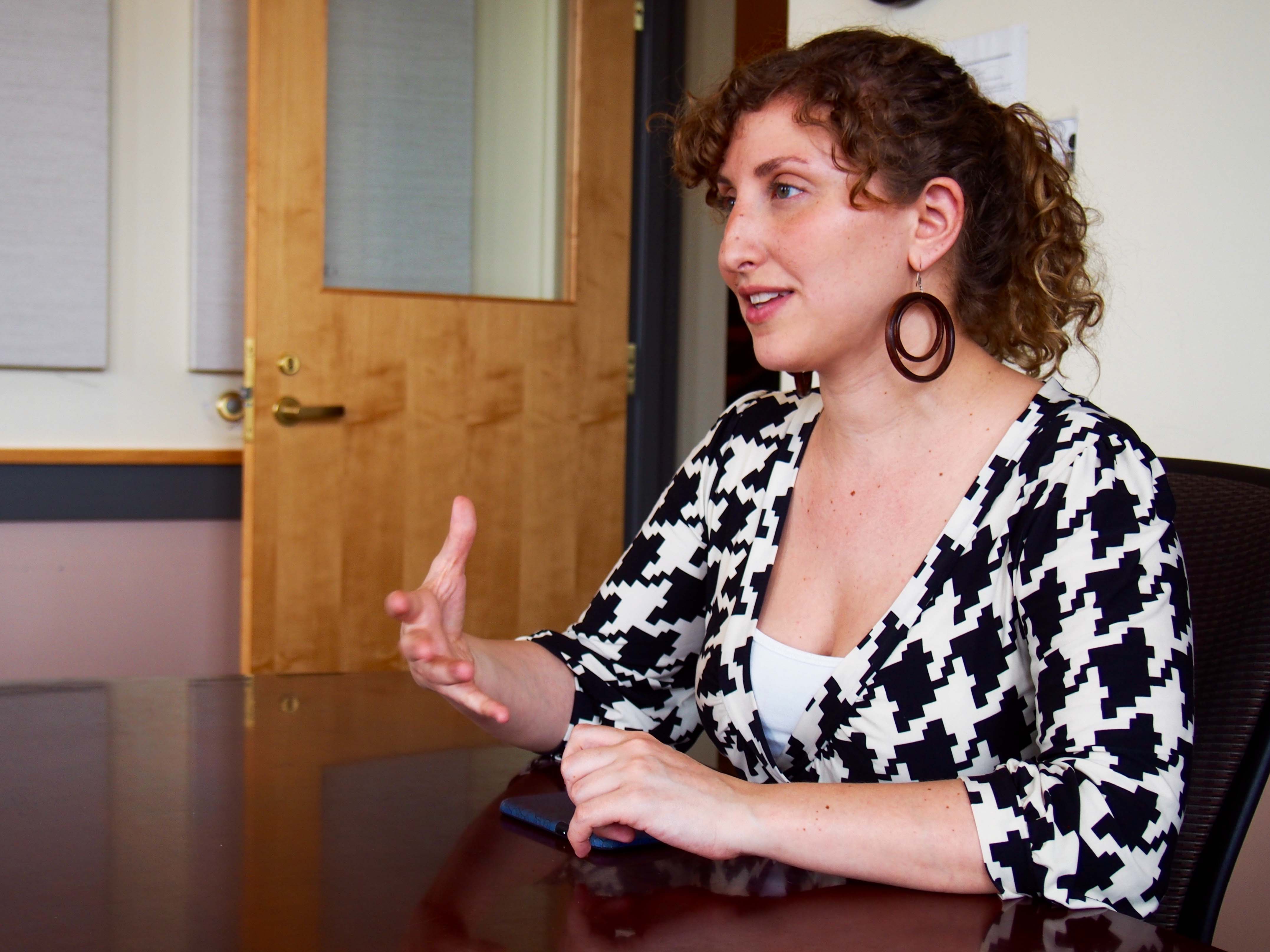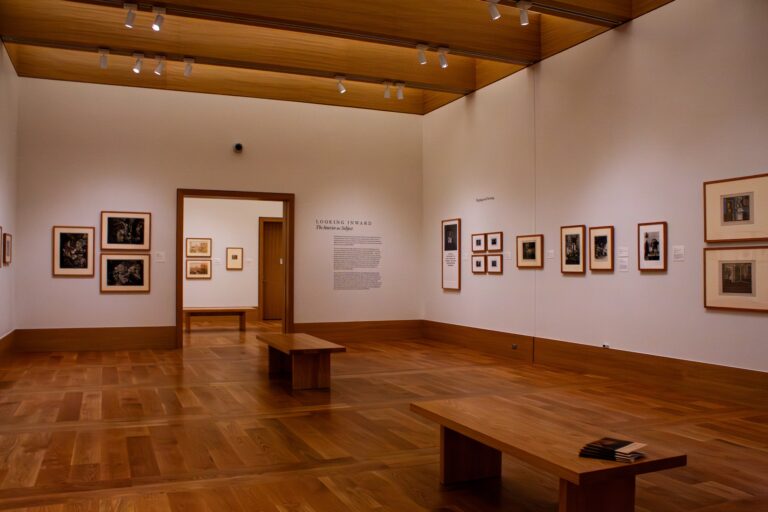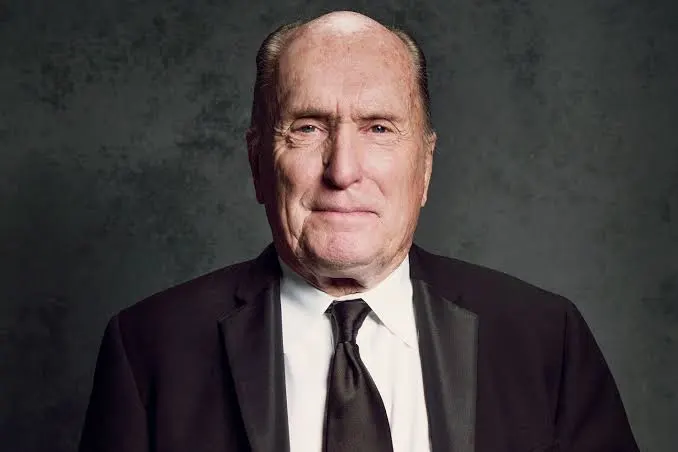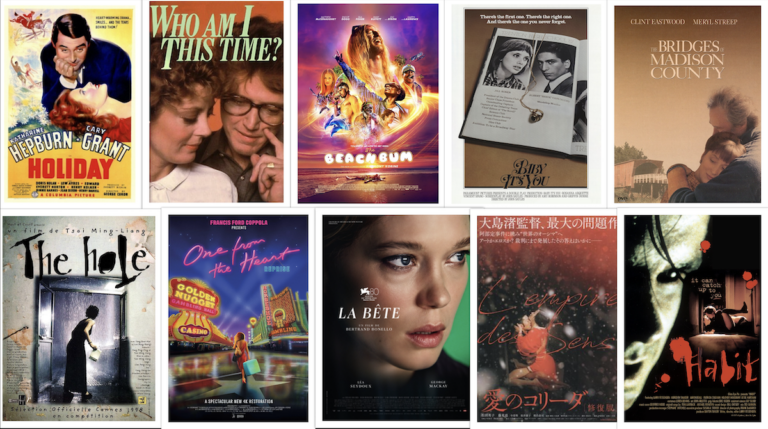Nona Willis Aronowitz ’06 Offers Advice on Breaking into Journalism in the Internet Age

This past weekend, The Argus sat down with Nona Willis Aronowitz ’06 following her visit to Koeppel Journalism Fellow John Stoehr’s course, “Topics in Journalism: Writing Op-Ed Pieces and Political Essays.” Aronowitz is currently the Features Editor at Fusion and previously edited The Slice, the Features section she created for political commentary site Talking Points Memo. She also is the co-author of “Girldrive: Criss-Crossing America and Redefining Feminism,” a collection of interviews about feminism with young women across the U.S., and has spent years reporting for outlets such as NBC News, WNYC/NPR, and Good Magazine.
The Argus: You mentioned during your talk yesterday that you initially thought of yourself more as a writer who wrote novels and other kinds of books than as a journalist. While you were at Wesleyan, were there any classes that shaped your understanding of yourself as a writer?
Nona Willis Aronowitz: First of all, I never thought I was going to write fiction. When I was a kid, I wrote fiction, but I think every kid wants to be a novelist…I meant that I wanted to write books, like, culture-defining books. And I think it’s because that was what I was reading in college…I wasn’t reading all that much journalism in college; I wasn’t even reading the New York Times every day, just because I was taking classes and in my own little world. And I was kind of up on current events, but honestly not even one of the most informed people, by any stretch…And the people that I admired were writing books. So I figured, “I’ll be a writer and I’ll write books.”
But I didn’t actually take any writing classes here. There weren’t any journalism classes here, when I was at Wesleyan. There wasn’t anything like [Stoehr]’s class. It was fiction classes. There might have been a Creative Nonfiction [class], but I think I probably would have taken it if there was. What really inspired me were my film classes and my sociology classes…I was really loving my film classes at Wesleyan, which made me want to be a film critic…[And] sociology classes made you write journal entries, which were sort of like op-eds in a way. I remember being in Sociology 101 and feeling really enlightened about social issues. And I think that led me eventually to want to do journalism.
A: How do you think your major of American Studies informed your path after college?
NWA: People make the joke about liberal arts degrees not helping you at all in the real world, but I feel really, tangibly aided by my American Studies major. What I learned as an American Studies major was about all the intertwining identities and tensions that have made America…I actually didn’t learn all that much about feminism and the history of feminism at Wesleyan, but it was sort of in the air. And that was definitely part of my thesis, which was about 1970s porn.
The multiple sociology classes I’ve taken really helped me…Just to read the literature about various injustices in the United States really helped my job, especially at Fusion. Fusion is all about social justice in a way, because this new, young, diverse audience really cares about it. And I see a direct correlation between the stuff that I learned at Wesleyan and the stuff that I’m doing now at Fusion. So that should be heartening for Wesleyan students: a big, sprawling, liberal arts major can actually help you with your writing career.
And I honestly am really happy I didn’t go to journalism school, because you can learn all that stuff on the job. What you really need to know is history and theory, so you actually have something to write about, and context in which to put it.
A: Since we just came out of thesis season here at Wesleyan, what is your best or worst memory of writing your own thesis?
NWA: Well, my thesis was about porn, so you would think that my best story would be somehow porn-related. But actually the whole thing was very professional; the American Studies department paid for all the movies.
I think my most embarrassing story was… I had one of those thesis carrels, and it was way on the top floor. And I don’t know if this is still true, but the nearest bathroom was like three stories down. And I was really into it; it was the last month and I was really toiling away at this thesis…And it was midnight or something, one of those weeks where they were keeping Olin open 24 hours for thesis people, and I was so into it and had to go pee, and ended up just peeing in a cup. And not leaving until I was done and disposing of the pee hours later. That was how devoted I was to my thesis about 70s porn.
A: Did you ever end up doing anything with your thesis? For example, trying to get it published or bringing it into your life after Wesleyan?
NWA: [My] thesis wasn’t just about porn; it was about the sexual mores of the 1970s, which were really the Sexual Revolution, which [in turn] has impacted all kinds of things today. So I often write about sex, and I once in a while write about porn. I think I mentioned this in the class yesterday. I wrote a thinkpiece for Playboy a year or so ago about audio porn, and it really reminded me of the kind of work I was doing in my thesis. I built on some of the fantasy theory that I learned when I was at Wesleyan. But I never actually tried to publish that particular volume of work. [My thesis] was mostly a cultural history, and it wasn’t what I was interested in right after college.
A: Which of your experiences right after college, such your internships or your Girldrive trip, most influenced your career?
NWA: I think the thing that most shaped it was the Girldrive trip. It was the first time I’d ever done reporting, and I was really out of my comfort zone; it was a project that I really wanted to do rather than an assignment or something I was expected to do. I saved up for it all by myself…It was a real coming-of-age moment for me.
That being said, I still do talk to people I met during internships. I mean, Rebecca Traister was at Salon when I was an intern there…I’ve never thought of this before, but the reason I have my job now is because of Rebecca. Rebecca introduced me to Geraldine [Sealey ’93], who hired me at Marie Claire and who hired me at NBC News and then hired me at Fusion. I would never have known about her if Rebecca hadn’t made that connection, so you never know…I would highly recommend internships because you never know who you’re going to unexpectedly make a connection with.
I was also in the service industry for a long time, and that really shaped my class consciousness in a way that nothing [else] ever has…I was a waitress and bartender, off and on, for four or five years after college, and I did it during the summers while I was at Wesleyan. And during Wesleyan, I was also in the service industry in Middletown, which was very interesting and very different from working at Red & Black or working at WesWings. Because they didn’t give a shit about your class schedule; they were mostly working people who had eight-hour shifts. So I learned a lot, and I would be remiss if I didn’t include that in my formative experiences right after Wesleyan.
A: You recently made the transition from reporter to editor. How has that been? Do you miss the more writing-heavy aspects of the job?
NWA: I do miss writing. I come up with a lot of features ideas that I have to give away because I don’t have time to do them. But it is nice to only write when you really want to write, and not to feel pressure to come up with an idea when your mind is just sort of blank. Also, I have an aptitude for editing that I never realized! I mean, it’s hard to admit this, but I think I get more recognition in some ways as an editor than as a writer. I think I was a good solid writer and reporter—I am a good solid writer and reporter—and when I’m really passionate about something, I do a really good job. But there are a lot of good writers out there, and it’s hard to stand out. Whereas I actually don’t think there are all that many good editors out there. And I have a knack for it, and people have noticed, and that’s really gratifying.
A: What do you think it takes to be a good editor?
NWA: Patience. I think a lot of people don’t take the time to go through multiple drafts with writers, and part of that is demands on their time, but part of that is just your sensibility as an editor, of really wanting to make a piece the best that it can be and not rushing…
The difference between a good editor and a bad editor is that a bad editor will just rewrite a piece they don’t think is up to snuff, and a good editor will get it to where it needs to be without taking over [the writer’s] own ideas and their own voice. That’s really, really hard, and I think I just learned by example. There were some editors who just bulldozed me when I was young, and just rewrote my stuff, and I still look at those clips and think, “That’s not me. That’s not what I meant to say.” And then there are some that are so much better, and they’re not in the editor’s voice, they’re in my voice.
A: Now that you’re at Fusion, what have you been most excited to cover, as opposed to when you were at Talking Points Memo [(TPM)]?
NWA: At TPM, I felt like I was trying to get inside the head of a different generation than mine, and at Fusion, I feel like I’m assigning and editing and writing for my own generation, and that’s really refreshing.
I also love that Fusion is unapologetically progressive in a way that some of our competitors aren’t. Like, we can’t endorse candidates or anything, but we take stands on things a lot of other start-up-y, millennial publications refuse to do, and that’s really cool. I’ve always been a really lefty person who comes from a radical, socialist, feminist tradition—my parents were both radical leftists—and it’s refreshing to not have to suppress that part of myself at Fusion, both as an editor and as a writer.
A: Do you find that there’s a big difference between writing or editing for more corporate publications, such as Fusion or NBC News, and more independent ones, such as TPM?
NWA: Well, Fusion and NBC are very different, because Fusion is a start-up with corporate money as opposed to a place that actually has a corporate voice. At NBC you really couldn’t be opinionated; you couldn’t take much poetic license…I think I did the best I could there with really trying to craft good scenes and good characters, but you couldn’t really let your sensibilities seep into your writing. That was good practice, I think; you shouldn’t always let your sensibilities seep into your reporting, but it’s really refreshing to be able to be myself now that I write for Fusion. TPM was the same; you could totally be yourself there, and there was no bureaucracy there. You could do whatever you wanted, provided that Josh Marshall, the founder, was okay with it. But Fusion has a really start-up vibe, even if its parent company is super corporate. So it’s kind of the best of both worlds, in some ways.
A: You’re working with Geraldine Sealey again, which reminded me that there are so many awesome Wesleyan women in the media. Do you ever feel like there’s a sisterhood out there, or is it more tangential than that?
NWA: That’s an interesting question. Geraldine has now hired me for three gigs; we established that we both went to Wesleyan pretty early. But I actually don’t feel like there’s a huge Wesleyan mafia in the media; I do notice that in film, and I notice that in music, especially around my years…But it is always nice to find out that people in the media went to Wesleyan.
I remember Edith Zimmerman ’05, who was the founder and first editor of The Hairpin. She had, like, a humor column in The Argus, and I remember seeing her around campus—she looked very young and unassuming. And then I would see these irreverent columns in The Argus, and I really perked up and noticed her. And then years later, she created one of the most distinctive voices on the Internet…And I always felt such a huge amount of pride that she went to Wesleyan.
And when Ariel Levy [’96] won the National Magazine Award for that amazing piece about losing her child, about having a miscarriage in Mongolia, I felt a pang of pride for her. I always feel a pang of pride at Vanessa Grigoriadis [’95], who’s from Wesleyan…There’s not that many of us… [and] I feel like there isn’t enough of a sisterhood there; there should be more. I mean, [Sealey] didn’t get in touch with me [just] because we both went to Wesleyan, but we did have that extra bond.
A: What advice do you have for Wesleyan graduates or undergraduates on avoiding the “Gabby Dunn problem,” finding a way to be recognized while actually making a living?
NWA: I’ve seen a number of Internet writers parlay their success into an actual paying job, and it really heartens me. The one thing I do notice about that is that their actual journalistic skills are kind of lacking, and it’s not really their fault, because they didn’t go through the traditional trajectory of getting an internship and being put through the wringer by an older editor. So I actually think it’s easier in journalism to avoid the Gabby Dunn syndrome than it is on YouTube or [by being] a social media star.
But I do think sometimes people skip some steps, and I think it’s still very stratified in terms of people who get the mentorship they need. I really see that breakdown across class and race lines, even though the field is opening up for beginning writers. After all, even though the Internet has really democratized things, you do need some skills under your belt; you need to know how to do something besides be funny on the Internet. You have to have depth and context to your career in order to really be lasting…
I discovered this, actually, when I was looking for an intern at TPM. I really saw the difference between people who had gotten some form of mentorship and people who hadn’t, and I found myself actually caring whether or not they had some formal understanding of what journalism is. I never thought I would care about that, but I did.
The person that I ended up hiring, Caitlin Cruz, who is now my Associate Features Editor at Fusion…She really knew the language of the internet, but the fact is, she went to journalism school at Arizona State University and had had a couple of internships at newspapers, and that really impressed me…I don’t think you necessarily need to go to journalism school, but I do think having some substance behind the jokes on Twitter is really helpful.
A: What’s your stance on publications like the Huffington Post or the Odyssey that employ a lot of unpaid freelancers? Should younger writers use them as a platform or find someone to pay them first?
NWA: I’ve always been really wary of that model…That said, though, I got my start writing unpaid concert reviews for PopMatters, and I was really happy I did that. I had the means to do it, though; I was at Wesleyan at the time…As I said, I wanted to be sort of an arts critic, and I saw somewhere on the internet, “PopMatters, concert and event reviews! Email this guy.”…I started to go to concerts for free and then to write for free. I went to this three-day hip hop concert at Trinity College and wrote this big long thing about it, I remember. And I was able to do that because I was still in college and somebody was paying for my lifestyle. But not everybody can do that and that’s unfair.
A: As someone outside of Wesleyan, how have you felt about the activism that’s emerging from this campus?
NWA: It seems pretty par for the course. It really reminds me of what was going on when I was here. When I was here, transgender issues were a big thing, and now it’s a national conversation, so I would assume that in some ways Wesleyan is ahead of the curve.
You hear those extreme cases, and you want to roll your eyes, but when I heard the story behind why some students didn’t necessarily want to defund the Argus but push the Argus to do better, I was like, “Yeah, that’s really important and prescient, and good for you guys.” I don’t sympathize more with the administration than the students; I think I’m still with the students.
A: Do you think there’s any truth to the “coddling” of college students that The Atlantic and other outlets have been reporting?
NWA: I don’t think I have longitudinal enough experience to say that. I mean, I’ve only been mentoring young writers for a couple of years. But I’ve been really impressed by some young writers…I haven’t noticed “coddling” so much as not knowing the basics of journalism, and those can be taught. Sometimes I’m just like, “Oh god, you don’t even know what reporting is, do you? You think that being a journalist is just writing your opinion on the internet.” But I have every faith in the world that that can be taught. In fact, that’s how I was. I was writing my opinion on the Internet, and I kind of taught myself how to report, when I went on Girldrive. Then someone really taught me to report and I was like, “Oh, okay, that makes sense.” I was 26 before I wrote my first really big, reported feature. So you gotta be patient with the younguns.








Leave a Reply